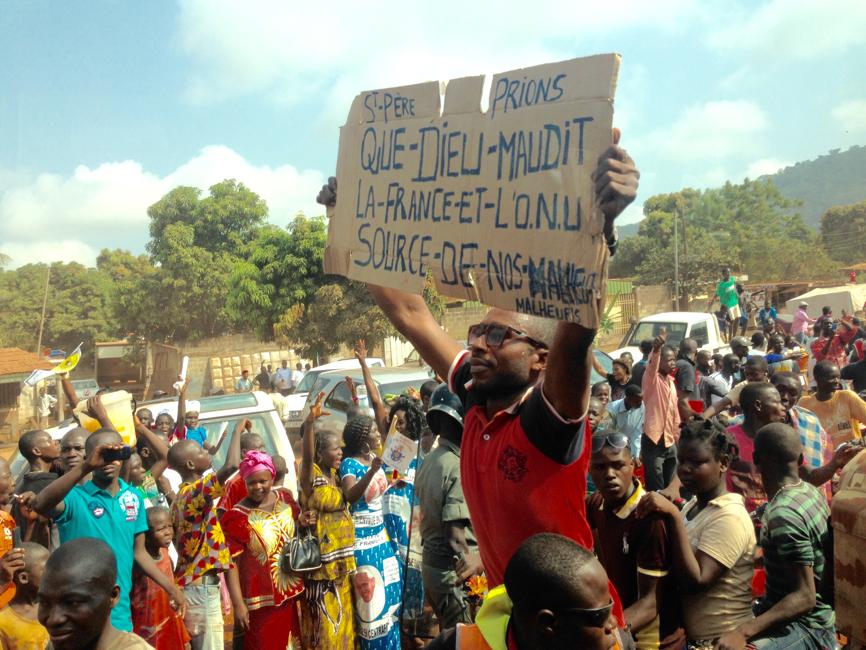Security challenge posed by Pope’s riskiest voyage yet has been overcome
Once the aeroplane took off, the commander of the Vatican Gendarmerie, Domenico Giani, breathed a sigh of relief and did not hide his satisfaction in
Dec 11, 2015

VATICAN: Once the aeroplane took off, the commander of the Vatican Gendarmerie, Domenico Giani, breathed a sigh of relief and did not hide his satisfaction in his comments to the journalists who accompanied the Pope on his African voyage. Everything went swimmingly in the end and the third leg of the Pope’s visit to Bangui, a city ravaged by instability and the civil war that is raging between Seleka’s Islamic militants and anti-balaka Christians, went according to schedule. Not only was Francis able to visit the mosque in the “KM5” neighbourhood - where clashes and killings were witnessed just a few days ago – CAR’s Muslims gave him the warmest of welcomes.
The French government had warned the Secretariat of State some time ago of the impossibility of guaranteeing the Pope’s safety in CAR. The soldiers who form part of the “Sangaris” peace mission operating in the country, were apparently not going to be involved. And so it was. Operations on the ground were coordinated by the Vatican Gendarmerie. Never before during a papal visit had they been deployed on such a scale or equipped to the extent that they were. Vatican police worked together with soldiers from “MINUSCA”, the UN stabilisation mission in CAR and the Blue Helmets, hailing mostly from African countries, notably Senegal, and led by a Muslim general. The Gendarmerie was accompanied by American UN soldiers. No external contractors were recruited. The skies over Bangui were monitored by UN helicopters that had a Vatican Gendarme on board at all times.
“There were no moments of tension, nor were there any real threats or dangers during the trip.” So in light of the situation on the ground, which Giani himself had verified just a few days before the Pope’s arrival, the scaremongering and the repeated warnings sent out about attacks potentially taking place during the Pope’s stay in Bangui were seem unfounded. Of course, the situation in the Central African capital is incredibly delicate and unstable, despite the efforts of the transition government which has a mandate to lead the country towards peaceful elections. But there seem to have been hidden interests behind the pressure placed on Bergoglio not to step foot in CAR. Naturally, there were concerns about the safety of the Pope and the faithful but there may also have been an attempt to prevent the spotlight from shining on the tragic situation of this forgotten country – one of the richest in the world in terms of natural resources but one of the poorest in terms of its population’s living conditions. These natural resources are being exploited and as always, there are big interests at stake.
Passing through the streets of Bangui, the Pope realised how much the people had longed for his presence more than his words. The tears shed by the interim President Catherine Samba-Panza, her moving speech, but even more so, the welcome the Pope received from the people, were clear indicators as to the importance of his visit and why the “messenger of peace” refused to cancel it. CAR needed to come into the spotlight, it needed words of peace and reconciliation and it was necessary to show that Christians and Muslims can live alongside one another. The atmosphere of recent days resembled that of a city’s streets when a war has come to an end. Let us hope this is indeed the case and this is why Francis wanted Bangui to be the “spiritual capital of the world” and its Holy Door to be opened early for the Jubilee.-- Vatican Insider







Total Comments:0